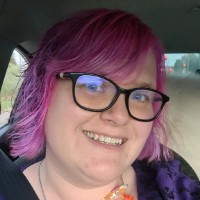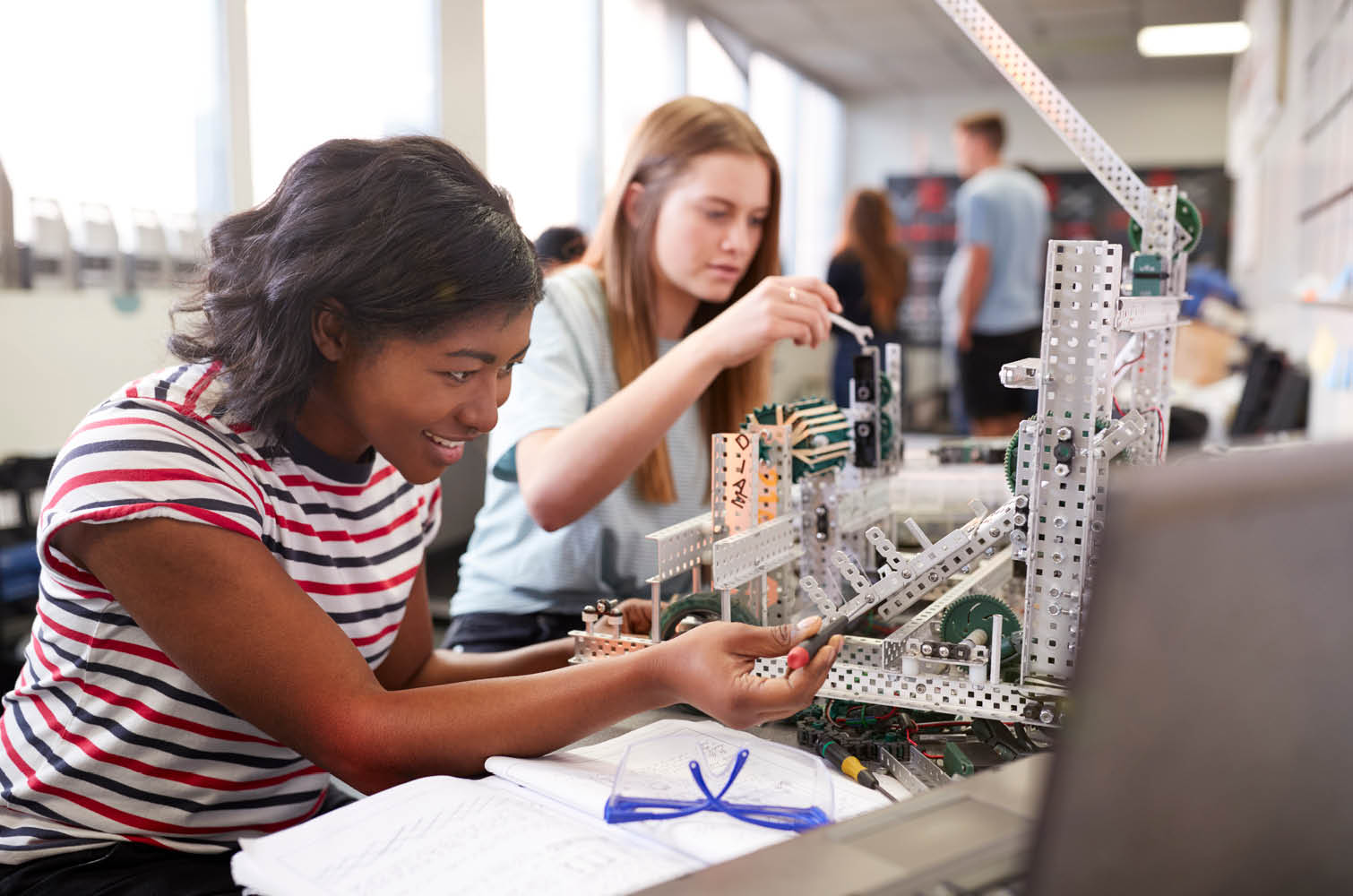
February 11th is the United Nations International Day of Women and Girls in Science, a day to celebrate and recognise the achievements of girls and women in science, technology, engineering and mathematics (STEM) around the world and to promote the full and equal access and participation for women and girls in a human-driven STEM future.
Australia’s Women in STEM Decadal Plan urges us all to envisage a vibrant STEM ecosystem that can attract, retain and progress girls and women into STEM education and careers.
The Australian Academy of Technology and Engineering (ATSE) is globally recognised for leading the development and implementation of best practice and policy to increase gender equity, diversity and allyship across the STEM sector through the co-establishment of the Science in Australia Gender Equity (SAGE).
In line with this year’s theme for February 11th, “Equity, Diversity, and Inclusion: Water Unites Us”, ATSE invited four mentees from our leading Industry Mentoring Network in STEM (IMNIS) Engage Program to share their innovative research, what inspired them to study and pursue a STEM career pathway, and the advice they would give to the next generation of women in science:
- How do you think water unites us?
- What inspired you to pursue a STEM career pathway in water research?
- When it comes to inspiration from other sources, who inspires you today?
- Do you have any role model(s) that you look up to?
- Looking forward, where do you see yourself in 5 years’ time?
- Finally, for every girl considering a future in STEM – what would be your number one piece of advice?
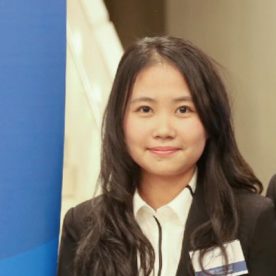
Zitian Gao
PhD Candidate, University of Melbourne
Zitian Gao is a PhD student working on big data analysis in agricultural irrigation. Her research aim is to improve water efficiency and productivity in Victoria and New South Wales. Her research has important implications for food security and water saving.
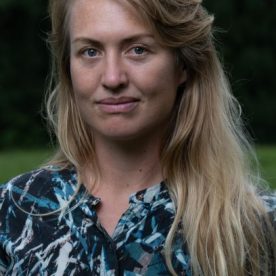
Emma Church
PhD Candidate, University of Queensland.
Emma Church is an environmental social scientist who seeks out ways for increase participation in pro-environmental behaviours. Her current research looks at how social networks can increase stewardship of waterways and coasts.
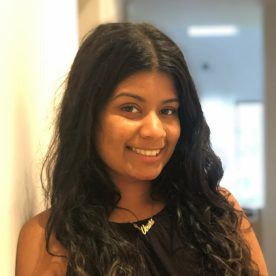
Vinuri Silva
PhD Candidate, University of Adelaide
Vinuri Silva’s PhD research focusses on various types of bacteria growing on marine plastic pollution. Her research aims to identify if pathogenic bacteria use plastic as a “vehicle” to transport throughout water.
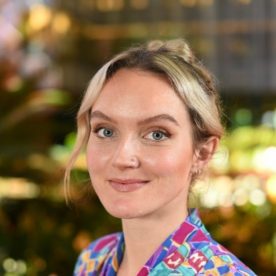
Megan Clay
PhD Candidate, Queensland University of Technology
Megan Clay’s research focuses on viruses of corals of the Great Barrier Reef. Although viruses have a bad reputation, they are hugely instrumental in controlling the coral microbiome. Coral viruses and other microbes must strike a balance in the community compotation as imbalances are linked to things like bleaching and disease.
How do you think water unites us?
Zitian: “Water is the most valuable resource on Earth and we all look for better solutions to save water or use water more efficiently. Hence, people from different disciplines are working as a big team and we can use our knowledge to facilitate water use.”
Emma: “Water is Life and life is water. Seen from space earth is a blue dot of water. As living things, we are made of water. We need it for to survive and to thrive.”
Vinuri: “Over 70% of the Earth’s surface is covered by water and next to air it gives us all life. It is of paramount importance to humans and all organisms. We have taken water for granted, my research focusses on our oceans, I see how we have neglected our oceans in the past few decades. Realizing how badly we have treated our oceans, and acting towards solutions together I hope will unite us.”
Megan: “Humans are all linked by the ecosystem services that water provides: it’s what we drink and bathe in, it is used to grow food, it is often a place which gives people a sense of calm and wellbeing. It is a precursor for life, which I suppose goes above and beyond seeing “us” as exclusively humans, but includes all living things. I think there’s a certain beauty in that, and can make us feel part of a wider ecosystem instead of living out urban lives, detached from nature.
“There’s also a sense of responsibility that comes with the sentence ‘Water unites us‘: environmental problems related to water are extremely common, and becoming ever more pressing with climate change, overfishing and natural resource use. I think that the requirement that all humans and nature have for water should drive a special consideration when it comes to consumption of water, products and deciding who has power with regards to deciding who should be allowed to use and contaminate water sources. There is only a finite amount of water on earth, it should be a unifying goal to protect that resource and ensure that it is safe and clean for future generations.”
What inspired you to pursue a STEM career pathway in water research?
Zitian: “Water is important to Australia’s agricultural sector and efficient water use can help the country save millions of dollars every year. I think finding a better solution for water use is useful, meaningful and exciting.“
Megan: “I was taking marine biology modules when studying abroad in Costa Rica. My housemate and I decided to learn to dive, and the moment I got out onto the reef for my first dive during my open water training, I felt like an astronaut. There’s a sense that you are a visitor in a completely different world. A reef is some kind of technicolour frenetic underwater city. It’s very different to going bird watching or searching for mammals or reptiles, because on land humans are seen as predators, but underwater we are not, and therefore the fish just hang out with you. I also knew lots of the names for the fish, sponges and corals from my classes, and there’s such a geeky satisfaction in being able to identify species.”
Emma: “Growing up in Australia on the North Coast of New South Wales, the ocean, coasts, and waterways have been a place of inspiration and respite for me.
“Experiencing these environments as a surfer and diver have shaped my values and career choices. This love of our oceans, coasts and waterways continues to sustain my research, recreation, and respite.”
Vinuri: “Witnessing firsthand how polluted our oceans are in various parts of the world. Wherever I travelled plastic waste in the coastline was a repetitive occurrence. I also realised how poorly understood this area of research was, given that it was a problem that we have created. Therefore, I made the decision to contribute towards plastic pollution research through my PhD.”
When it comes to inspiration from other sources, who inspires you today?
Emma: “Young people! I work with several science, science communication and education programs, teaching marine science at sea by guiding young people on ocean based outward-bound style adventures or showing kids how their brains work at music festivals. Marvelling at the wonders of nature together fills me with energy to keep going. These young people are the people who inspire me and give me hope.“
Zitian: “My parents and boyfriend support my research and always help me when I meet difficulties.”

Do you have any role model(s) that you look up to?
Vinuri: “My supervisor and lab colleagues. I’m in an aquatic research lab at the University of Adelaide led by my supervisor, Professor Bronwyn Gillanders and consisting of many brilliant individuals. Being mentored by my supervisor, a strong female role model and being surrounded by such a diverse group inspires me to be productive and keep pushing. ”
Megan: “I’ve always considered myself a little bit of a Jack of all trades, and I’m also really into my podcasts, so I’m going to say Allie Ward. She presents a podcast called Ologies, in which she interviews experts in different niche fields, such as dolorology (pain), dendrology (trees) and marine archaeology. Her questions are always so spot on, combining smarts and humour, and she keeps me striving to be curious about everything, and not pigeonhole myself into a niche field. “
Looking forward, where do you see yourself in 5 years’ time?
Megan: “I’m asking myself this question relatively often at the moment, being at the end of my PhD, and what I think that I would love to do is to work on solving big environmental problems related to water. These could include working in COP style situations, working on developing policy on international fishing, working on water quality of the Great Barrier Reef, etc.
“I expect that such a role would have to take place in a government role, but I’d also be interested in working for a consulting firm or within an NGO, as long as I felt that I was making an impact and would leave the world in a better place.”
Emma: “Working with communities, industry, academia and government, using applied research to solve conservation and sustainability challenges.”
Vinuri: “I see myself handling or being a part of major environmental projects in 5 years, whether it be through government or industry.”
Zitian: “I prefer to work in academia but I am also open to any other opportunities.”
Finally, for every girl considering a future in STEM – what would be your number one piece of advice?
Zitian: “There is an increasing trend of girls working in STEM and I encourage all girls who have interest in STEM to join. It is an exciting field.”
Emma: “Our world is a fascinating place, if you have a love of learning STEM offers a life time of exploration, so follow your curiosity.”
Megan: “Do it! Surround yourself with positive people who aren’t going to tell you that you can’t have it all. If you’re passionate about something, put in the hard work, but also respect your body and mind and don’t sacrifice your work life balance. Take opportunities and try new things. Enjoy being curious and be grateful that science allows you to make curiosity your 9-5. All the best of luck!”
Vinuri: “My advice to girls considering STEM is never close a door before you know what’s behind it. In other words, don’t reject any opportunities that come your way, even though you may be unsure of what it may bring. When we’re young we have a lot of figuring out to do and if you reject an opportunity without knowing the outcome, you will never know what that opportunity would have brought upon you. Be open minded to everything and you will do great.”
ATSE was recently named the sole implementing partner for the Australian Government’s 7-year $41.2 million “Boosting the Next Generation of Women in STEM” fund.
The transformational program, named Elevate, will award up to 500 undergraduate and postgraduate scholarships to upskill women with STEM qualifications, research, and business expertise, so they can lead and shape a dynamic and impactful Australian STEM sector.
